Fish and people
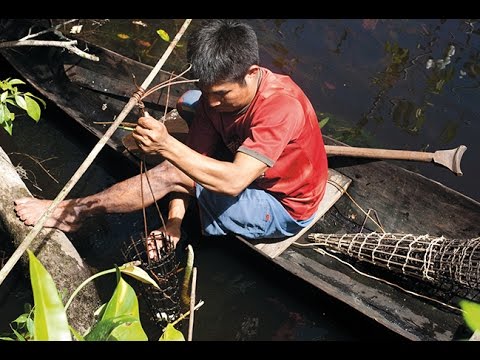
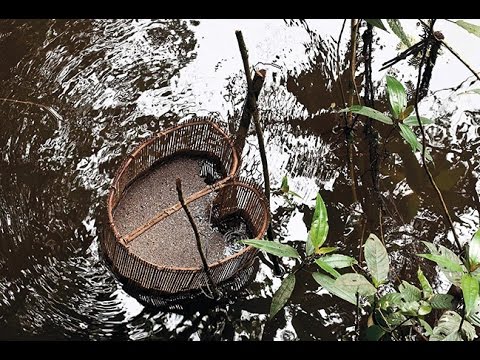
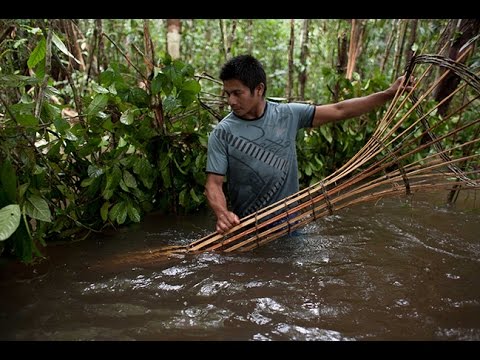
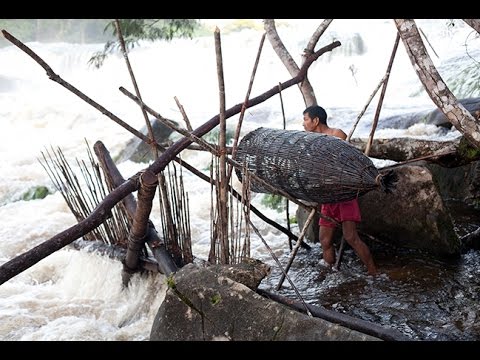
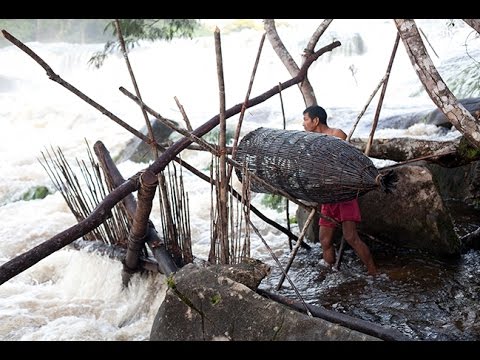
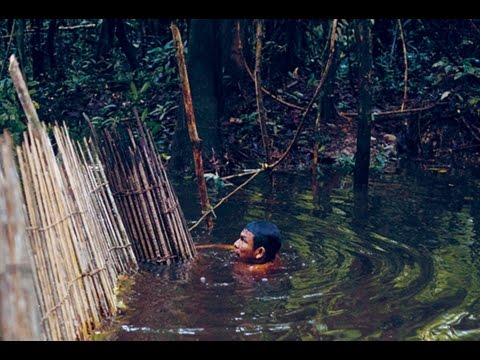
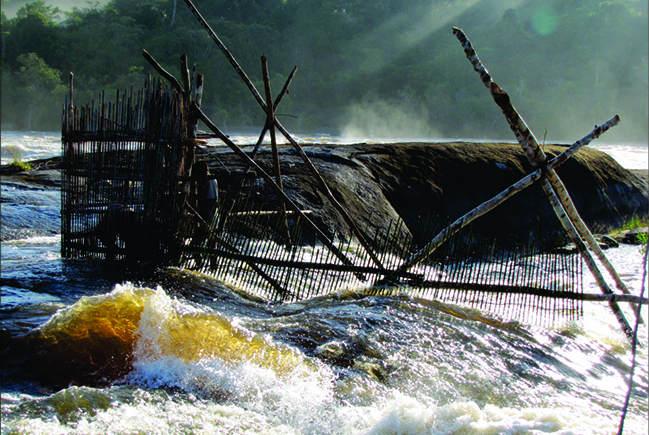
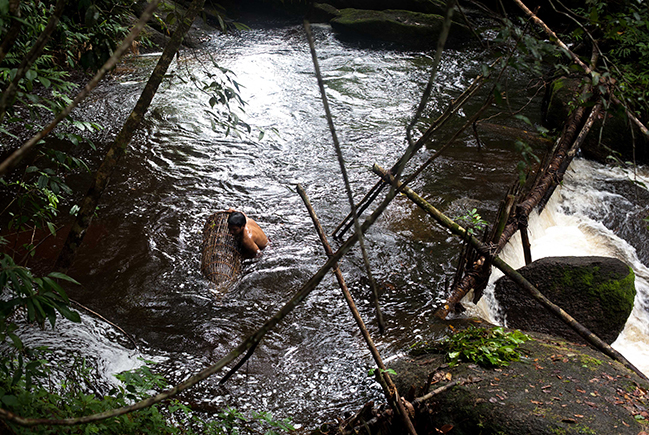
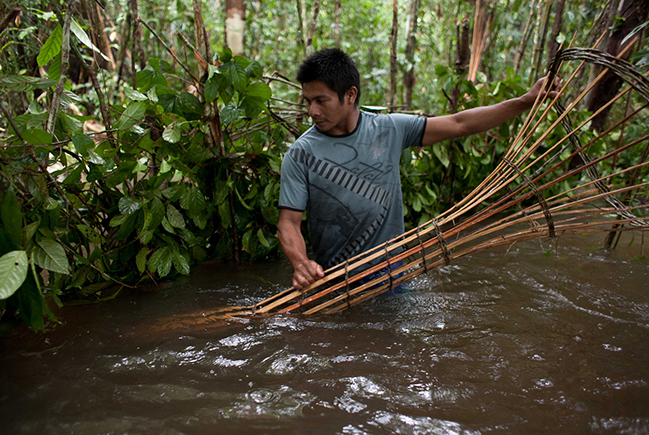
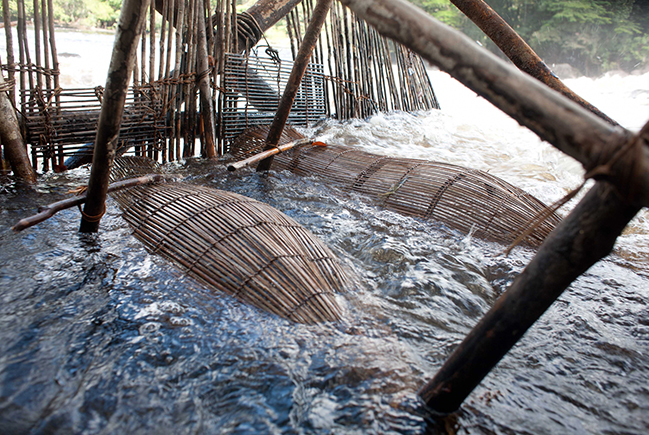
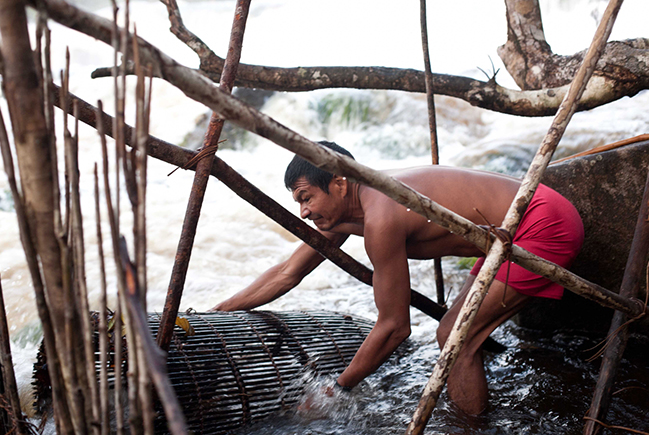
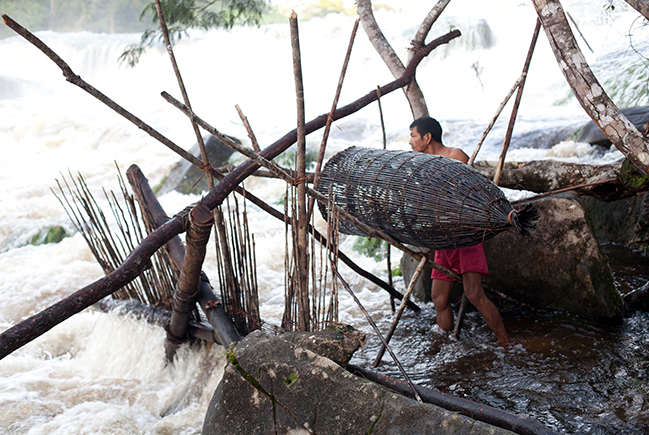
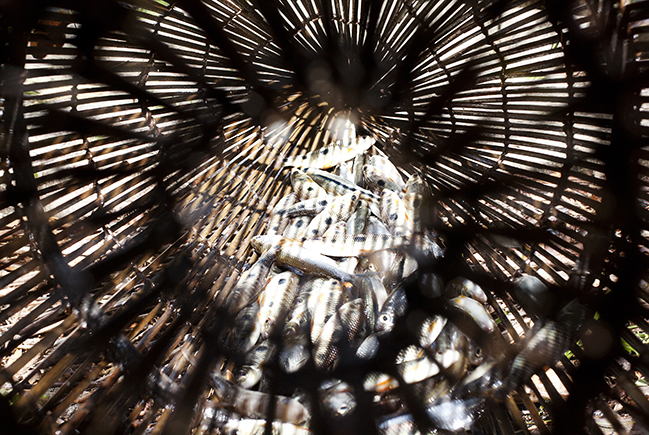
The Fish and people exhibition tells stories about the skills and the imaginary of a people who live in the upper Negro River. It also tells about the Museum of the Amazon, the Musa, a live natural and cultural museum of the Amazon forest.
To share their stories and tools, we invited: Luciano Amaral Barbosa, of the Yebamasã ethnicity; the Tukano José Pimentel, Tarcísio Barreto, Domingos Marques, and the Tuyuka Guilherme Pimentel Tenório, skillful engineers who live on the banks of the Tiquié River, men who are knowledgeable of the secrets of the forest, the fish and fishing practices, outstanding craftsmen who build fishing traps which they assemble by using vines and splinters from paxiúbas and zarabatanas. Musa welcomed them in Manaus and offered them tools to recreate, step by step, their everyday life and fishing practices and ceremonies.
Musa also welcomed Feliciano Lana, a Desana man with a prodigious memory of myths and stories, who painted the facade of the exhibition pavilion and the beautiful watercolors that illustrate the origin myths recorded on the exhibition panels. We also invited Anthropologist Aloisio Cabalzar from Instituto Socioambiental (ISA), who, with the help of a dedicated and remarkably persistent team, have been meticulously studying and recording the fishing habits and the routine of the Tiquié fishermen for over 15 years. In collaboration with them — and with the passionate Musa team —, we have put together an exhibition to tell everyone who lives far away from the Tiquié how the origin of the world and of humankind was understood in the old times, when fish and humans populated the earth. Ways that are different from our urban ways.
From the stories of the Tiquié engineer-fishermen, we learn that, in order for the fish to come into the traps, they want to be invited to participate in the ceremony of feeding the people. Sensible and solidary, people and fish have sought to navigate together the paths of life and enchantment since their origins.
To Musa, defending and disseminating indigenous cultures is not only an imperative of human solidarity, but also a necessity if we want to decipher the enigmatic representations of nature’s theater in the forest.
See also:
Vídeos apresentados na exposição
Fotos do espaço expositivo
Catálogo em português
Catálogo em inglês
